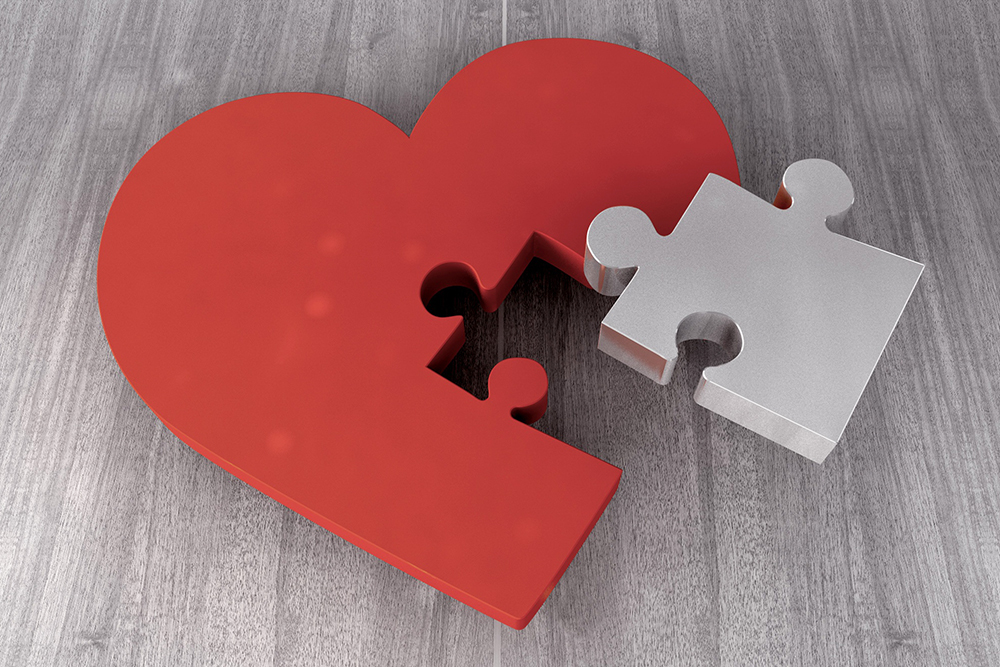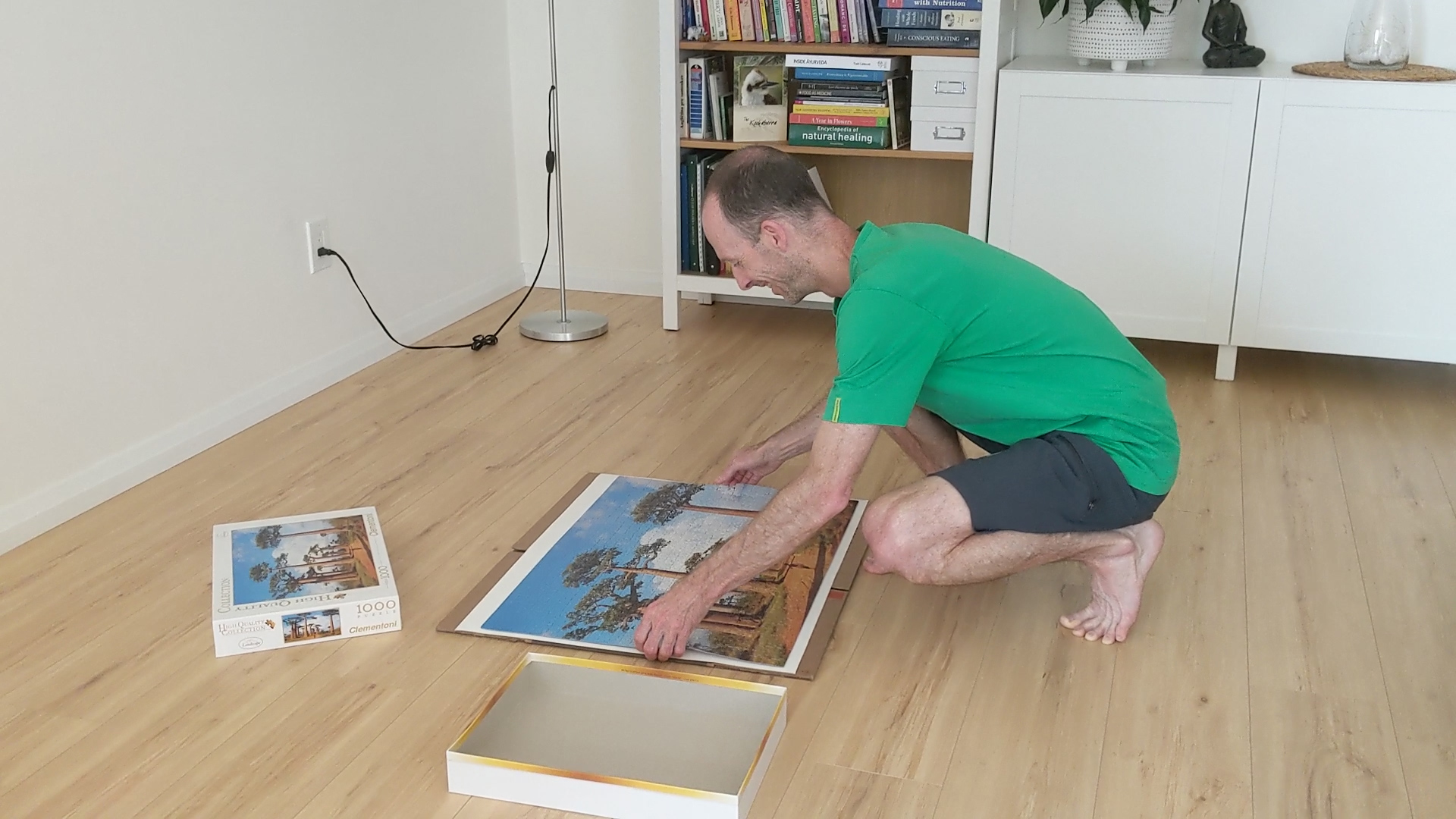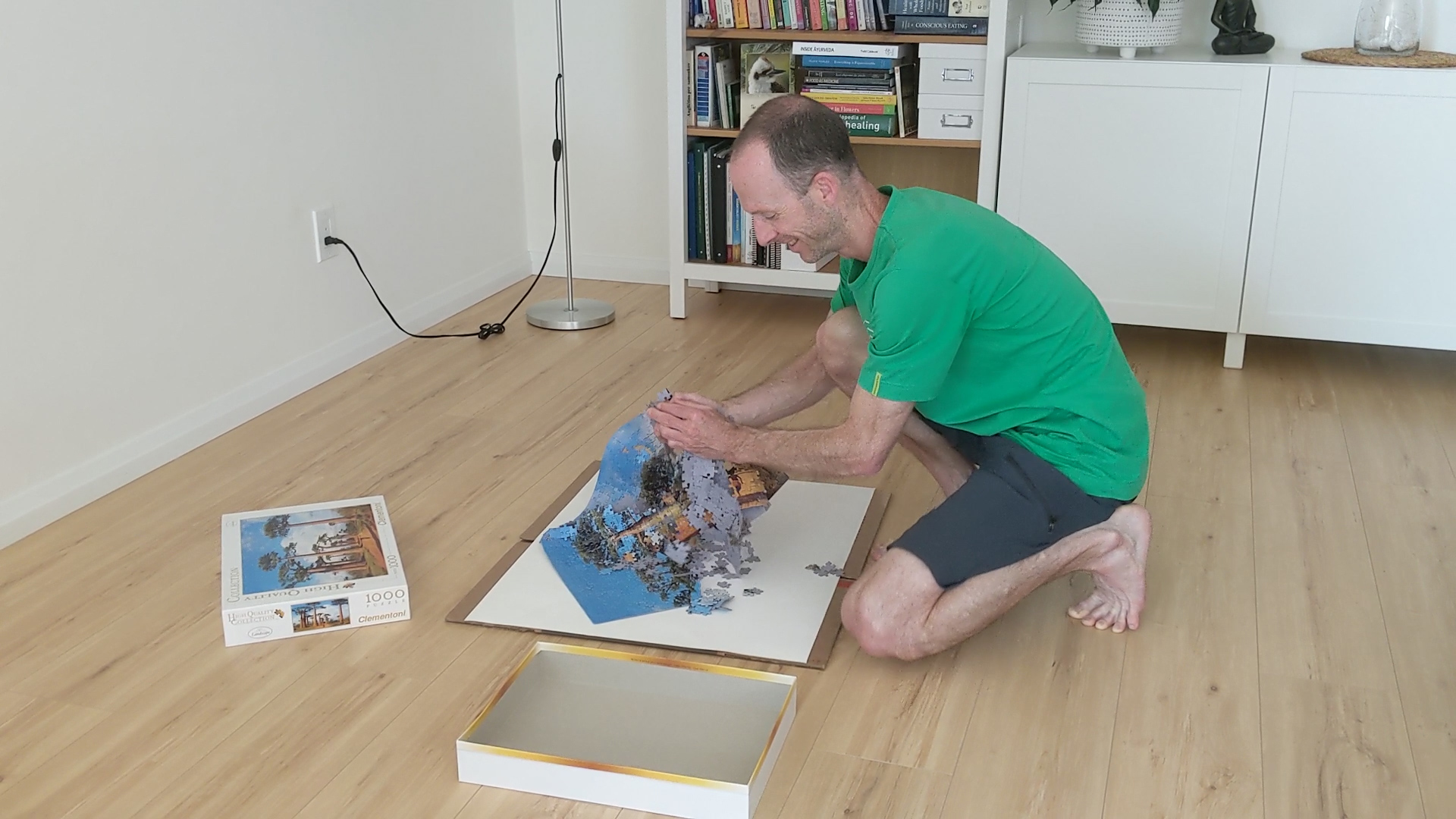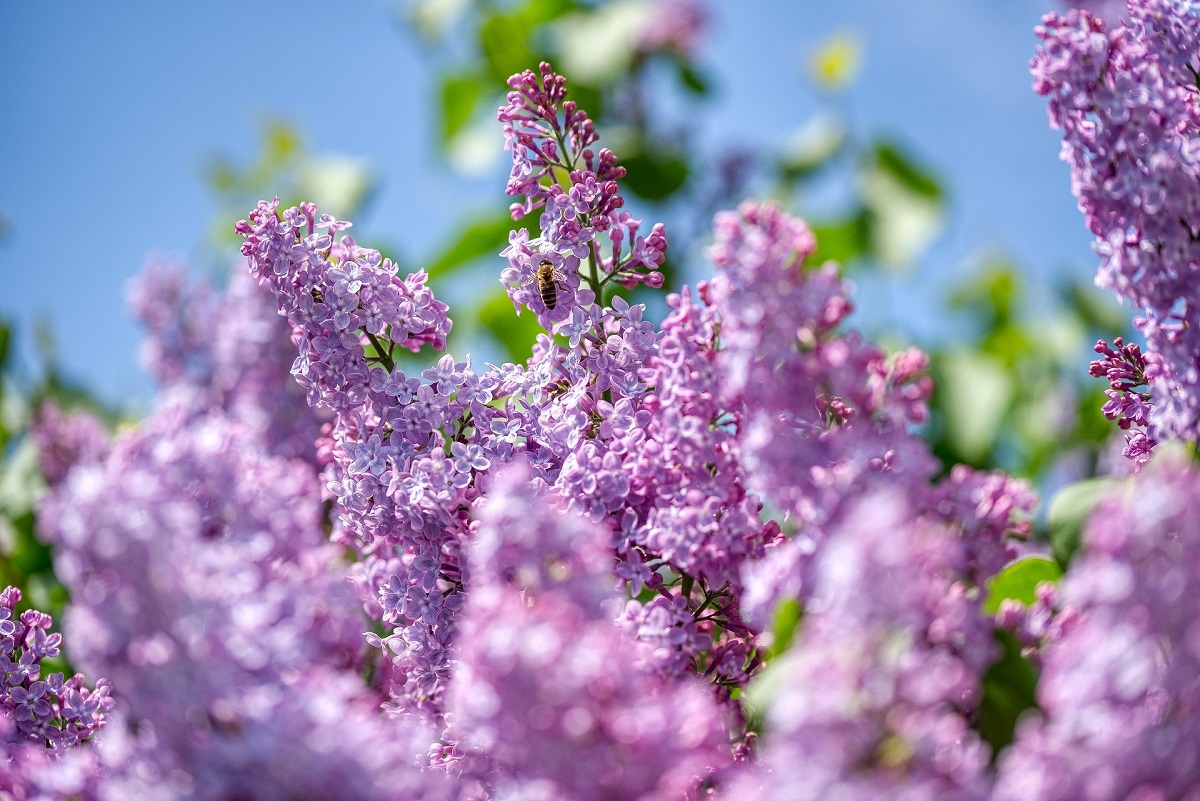
Freedom comes from letting go.
Letting go of what?
Our attachments.
An attachment is essentially something or someone that we’ve developed some kind of bond with. That could be with a person – your partner, family member, friend or workmate. It could be your pets. It might be your physical possession – your car, home, bike, clothes, your favourite mug, your plants, or a book.
I don’t want to label attachments as inherently bad or good. The purpose of this post is to explore the effect that attachments can have on us.
There are so many things that we unconsciously become attached to, so if we want to gain a sense of inner freedom and reconnect to the wisdom of our heart, we need to have a better understanding of how attachments impact us. Because once we’re aware of the effects – meaning we can feel them – then we have more power to choose.
The Puzzle
I recently finished a 1000-piece puzzle. I hadn’t done a puzzle for at least 25 years, but I had the inspiration to do one. I’d never done one of this size before, but I liked the image, so I chose it.
I’m sure if you’re a seasoned puzzle person, then maybe 1000 pieces is not that much but it was substantial for me and took me far longer than I originally thought it would. I initially thought I’d do it over a few hours on the weekend… but after my first couple of hours and only having done a very small amount, reality set in – this was going to take much more time than I was expecting.
I wanted to finish it, so I didn’t give up… But I did take my time.
So, over a couple of months I just did little bits here and there and gradually got through it. As the various parts of the image took shape, there were feelings of satisfaction, and then accomplishment once I finished.
So, why am I sharing this story with you?
What came next was a little unexpected.
Once I’d finished, I showed Martina (my partner). She admired it for a few moments and then said to me: “Now what?”
I paused.
It was a nice image, but I didn’t want to frame it and put it on the wall… But I realized that part of me didn’t want to destroy it either.
It was interesting to feel the attachment I’d developed to the puzzle. It was the only reason I hesitated to pull it apart.
I reflected on the time and energy I’d invested into it, and while I had chosen to do a puzzle because of an inspiration and an aspect of my inner child shining through, I hadn’t thought too much about what I would do with it afterwards… I was just enjoying the process.
As I reflected, I could feel the profound lesson in attachment that parallels all aspects of our lives.
Time and Energy
We create attachment to so many things in our lives because we invest time and energy into them. Sometimes we do it consciously and other times it’s not so conscious.
My experience above was only about my attachment to a puzzle, but the same principle is true for the time and energy we give to our relationships, habits and possessions.
Why is this important?
Sometimes the attachments we create within our relationship, habits or with our possessions hinder our clarity of mind when it comes to connecting with our deeper wisdom, intuition, and knowing when to let go.
Maybe it’s a relationship you’ve held onto for too long that was once beneficial and healthy but has since become unhealthy. The sense of attachment that’s come from the time and energy you’ve given to that relationship can cloud your judgement to end it when you know you should.
Or perhaps it’s an argument within a relationship that you’ve over invested yourself in, and your attachment to winning is overpowering your capacity to understand and hear a different perspective.
Maybe it’s an attachment to your old car. You love it because you’ve had it for so long and had so many amazing road trips with it, but it keeps breaking down and costing you far more money to fix it than it would to buy a new one. The question is not whether you keep it or sell it, it’s whether your attachment is clouding your better judgement.
Perhaps it’s about clearing clutter form your home or letting go of an old pair of socks that have no heal left in them.
Ultimately, letting go is about creating space for new possibilities.
That doesn’t’ mean we have to let go of everything we invest time and energy into, but if we want to grow we need greater self knowledge, so it’s important to understand how the feeling of attachment can cloud our inner wisdom.
We often invest time and energy into people and thing that bring joy, creativity and beauty into our lives, but sometimes our intuition is telling us it’s just time to let go and move on.
“A thing isn’t beautiful because it lasts.” – Vision: Avengers, Age of Ultron.
Explore your attachments
I invite you take some time to reflect on some of your attachments. Not just a few minutes here and there, but take this next week (or longer) and really explore it.
Don’t just think about it… Feel it!
Feel it in different aspects of your life.
Sense of bond between you and the thing or person. Does it bring a joy or does it bring a grasping or tension?
Does it feel like there’s no separation between you and the attachment.
Is this attachment part of your familiar sense of self?
Would you know yourself without it? Who would you be without it?
Is this attachment clouding the wisdom of your heart from speaking to you?
Is it hindering the change you need in your life?
Notice what you notice and just be honest with yourself.
Writing your observations and reflections down can be helpful because it tends to make it feel more real. If you journal, add them in there. Come back and read them each day and notice how it helps you to get more and more refined and detailed in your understanding of your attachments.
This practice is not only about understanding attachments, it’s ultimately about reconnecting to the wisdom of your heart… The more you allow yourself to feel the attachment, the more you will reconnect to your inner wisdom – and you’ll know what it actually brings to your life, and to know whether you need to let it go or not.
For example, letting go of an attachment in a relationship, might mean the relationship has to end, but it could also mean that it improves the relationship by creating space and freedom from an underlying attachment to a destructive habit of behaviour.
Expect surprises!
…





